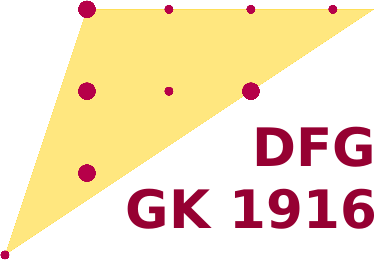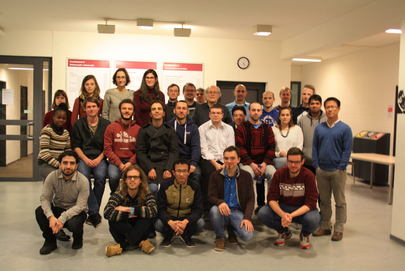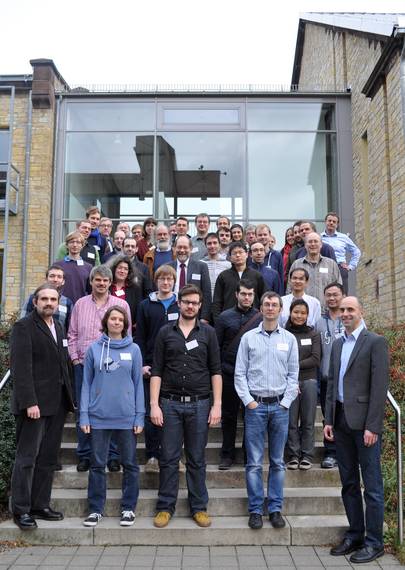Main content
Top content

Contact Details
Universität Osnabrück
Institut für Mathematik
Albrechtstr. 28a
D-49076 Osnabrück
Phone.: +49 541 969 2564
Fax: +49 541 969 2770
gkmath@uni-osnabrueck.de
Spokesman
Prof. Dr. Matthias Reitzner
Phone: +49 541 969 2239
Fax: +49 541 969 2770
matthias.reitzner@uni-osnabrueck.de
Combinatorial Structures in Geometry
The DFG research training group "Combinatorial Structures in Geometry" at Osnabrück University was established in 2013. The research training group is supported by the working groups algebra/discrete mathematics, applied analysis, stochastics and topology/geometry of the Mathematical Institute and the working group Institute for Computer Science. The groups involved research projects in their respective areas of work to the geometry using combinatorial methods and bundle these common interests in the research training group.
The central idea behind this research training group is the interpenetration of combinatorics and geometry. The research results of all scientists involved have been strongly influenced by these crosslinks for quite some time as they enable extremely precise structure related conclusions. This particularly applies for objects of algebraic geometry, as e.g. affine and projective varieties, and for objects of discrete geometry, as e.g. cones or polytopes. These common questions of mathematical disciplines, which often work isolated, shall be connected by a cross-linkage of different approaches and questions. The research programme of this training group therefore focuses on projects of at least two fields of interest so that – on one hand – new tools are provided for every individual field and – on the other hand – the examination of new theoretical questions is stimulated.
Furthermore, new perspectives are created by the intensive exchange in lectures, seminars, workshops, and the seminar of the research training group. The PhD students learn how to look over the rim of a tea cup and how to look at their subject in a major context. The target is to develop new methods from that.
The doctoral students' promotion theses are accompanied by a targeted qualification program, supported by the central facilities of the university. In particular, this also enables the acquisition of job-relevant key qualifications.
The Deutsche Forschungsgemeinschaft (DFG) is providing about 3.5 million euros for the research training group up to 2019. The Department of Mathematics/Computer Science can thus create ten new posts for doctoral students and two postdoctoral positions.



